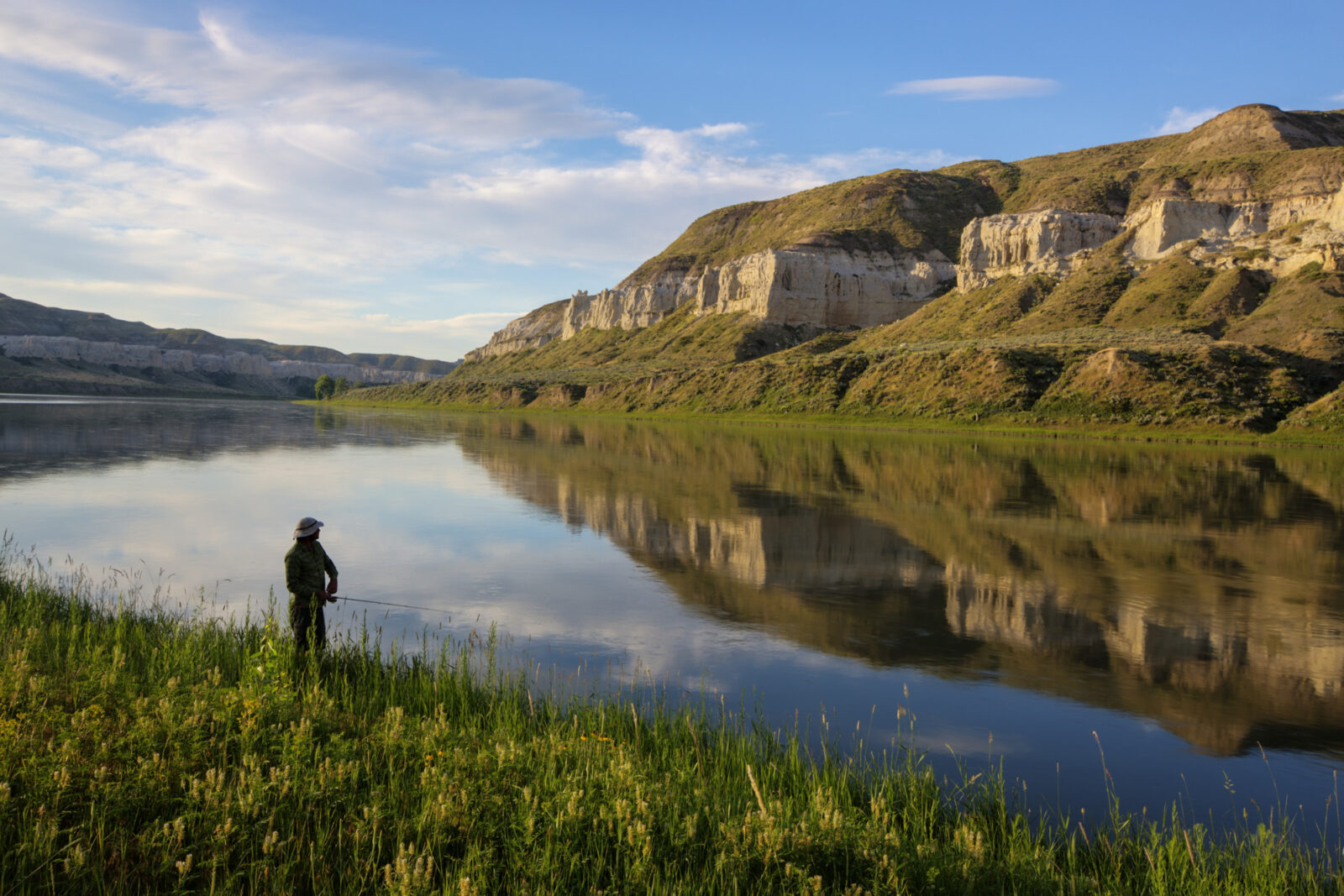
Lewis and Clark National Historic Trail
HARDSHIP
In May 1804, 31 young men set out on the journey of a lifetime: Paddle the Missouri River as far as possible, then cross the Rocky Mountains, then canoe down the Columbia River to the Pacific Ocean. If they survived, they could come home by roughly the same route.
For 26 months, the Americans went to a place of legends, an unmapped and unnamed land. They lived among strangers, as some Native Americans demonstrated great hospitality while others were hostile to the mostly peaceful invaders.
These were tough men living on the frontier, added to the Corps as their commander, Meriwether Lewis, worked his way west from the capital city to Pittsburgh, down the Ohio River, then up the Mississippi River. But perhaps the toughest of them was the young Shoshone girl, Sacajawea, pregnant and far from home, living at the cultural intersection of several tribes, trappers from France and England and Canada, and these new Americans. As the child bride of a trapper, Sacajawea depended on kindness and her wits to survive. She would give birth to her son, Pompey, with only these men to help her through labor and the challenges of being a new mother.
Led by the melancholy Lewis and the congenial William Clark, the Corps of Discovery was the first American expedition to cross the Rockies and return. That return was never guaranteed. The Sioux and Blackfeet both threatened violence when the expedition entered their territory. The treacherous Missouri River could have drowned the whole lot of them. The wildlife around them, the illness, cold, heat – any of these could have wiped out the expedition. Miraculously, only one crewman died, a victim of appendicitis that might have killed him in America’s finest hospital.
Perhaps the greatest challenge faced by the Corps of Discovery was hunger. When they left St. Louis, they had enough food to last across the Great Plains, which itself provided a bounty of delectable wildlife. For a year, the corps ate well. But when they reached the Rockies of Montana and Idaho, the game thinned out. A pack of professional hunters found themselves eating candles and shoe leather to survive to stay alive and to keep moving west, knowing the only way to survive would be to reach the salmon-rich Columbia.
One wonders if Lewis and Clark remembered the Exodus passage when Israel, wandering in the desert, hungry and tired and scared death was chasing them, thought captivity would be better than starving. Their journals don’t show discord in the expedition, but surely there was some grumbling in the ranks. When we are hungry, when we are scared, when we face challenges we are unsure we can overcome, griping can feel awfully good.
But hardship asks more of us than griping. The real work comes in persevering, keeping our focus on the next positive step, even if we can’t see where that next step leads. Sometimes those challenges seem insurmountable – and sometimes, they are. As much as we don’t want to admit it, there are obstacles we cannot overcome. Human nature can compel us to power through on a challenge even when there is no chance of success just in case life surprises us with a victory. We take on the challenge in front of us and see what happens next.
That’s how Lewis and Clark made it home, one step (or, when they were canoeing, one paddle) at a time. Today, the Lewis and Clark Historic Trail roughly parallels their path across what are now eleven states. Sometimes right on top of their trail and sometimes dozens of miles away, we can see some of what Lewis and Clark saw. Much has changed – interstates cross the Rockies in hours instead of weeks, the Missouri River has been tamed by wing dikes and levees and dams, the tallgrass prairies and their bison have been replaced by wheat and cattle, and the Native Americans have been ripped from their land, assimilated into American culture or relegated to reservations, an ongoing hardship all too easy for most Americans to overlook.
What hardships have you overcome in your life? What hardships still remain? How can you help somebody else overcome their own hardship?
